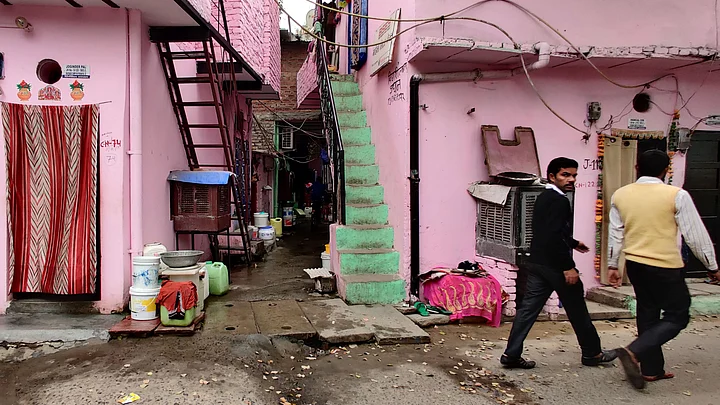“Finally, there’s an atmosphere of joy in our colony. The day they will be hanged will indeed be a good day,” remarks Bihari Lal, sitting by an elevated platform outside his jhuggi in Delhi’s Ravi Dass Camp – home to four convicts in the brutal gang-rape and murder of Jyoti Singh in December 2012.
As rumours around the execution of the four convicts – Pawan Gupta, Akshay Kumar Singh, Mukesh Singh and Vinay Sharma – started to float around, many in the south-Delhi slum wondered when exactly they will be hanged. “When will they be hanged? Will they be hanged on the 16th?” asked Bihari Lal, looking for the slightest sign of affirmation. Later in the day, news came in that the Supreme Court would hear the review petition of the convicts on 17 December 2019.
But even before he could finish his question, the 56-year-old, also known as Pradhan ji, asked if the bodies of those killed in the Hyderabad encounter were returned to their families. Veiled behind the question was probably one apprehension – will the bodies of the convicts be brought back to the slum before cremation along with a beeline of mediapersons?
Living With Stigma
Ever since the arrests were made in the case, Ravi Dass Camp has been living under the shadow of a deep-seated stigma. So much so that 22-year-old Akash had to lie about his locality to his college friends. “People would judge us when we told them we are from Ravi Dass Camp. I told my college friends that I live in Munirka and could never really invite them home,” says Akash.
A Delhi Police aspirant, Akash has been inspired by the idea of instant justice in rape cases, like the recent Hyderabad encounter. Much like other residents of the slum, he agrees “they should be punished for what they have done. This should have happened much earlier.”
It’s not just Akash. While generic pictures of the slum were taken by this reporter, a visibly angry woman approached him and asked “why are you taking pictures?” A few seconds later, she rued that “her relatives don’t know that the family stays in this slum and that she would feel humiliated.” When asked if the convicts should be hanged, the woman who refused to be named, said “why not?”
Convicts’ Parents Want Life Sentence: Neighbour
While most residents maintained that the convicts must be hanged as soon as possible, the family of one of convicts, Vinay Sharma, refused to speak to this reporter. Meenu, a neighbour, said that Sharma’s parents feel their son’s death sentence must be pardoned and that he should be awarded a “life sentence instead”.
When asked if that will deter others from committing such heinous crimes, she asked “Even after so much of hue and cry have rapes gone down? Instead, they’ve only risen in number. These days, people are not afraid.”
After a pause, the homemaker who’s been living in the slum for 15 years concedes and adds “It’s also important to send a strong message and a death penalty will have some impact.” But since we are neighbours, “it’s difficult for her to speak against the convicts.”
‘Make Death Penalty the Norm’
Pallavi, 32, who lost her job after her company shifted to Kolkata, says that she is ashamed to identify as a resident of the slum, everytime she appears for a job interview. Claiming that she has been in favour of death penalty for convicts from day one, she says “Infact, it will be be fitting if they hang on 16 December.”
But if and when the rapists hang, will Ravi Dass camp finally be able to shed the stigma that has been imposed on it? “Once a bullet has been fired, it cannot be taken back. Similarly, once reputation is lost, it’s not easy to regain it,” says Ashish Pratap Singh, who runs a shop outside the slum.
The image of his slum notwithstanding, Singh says that “death penalty will definitely bring down crimes against women. In fact rapists should be shot at like the ones in Hyderabad or should hang without trial.”
(At The Quint, we question everything. Play an active role in shaping our journalism by becoming a member today.)
